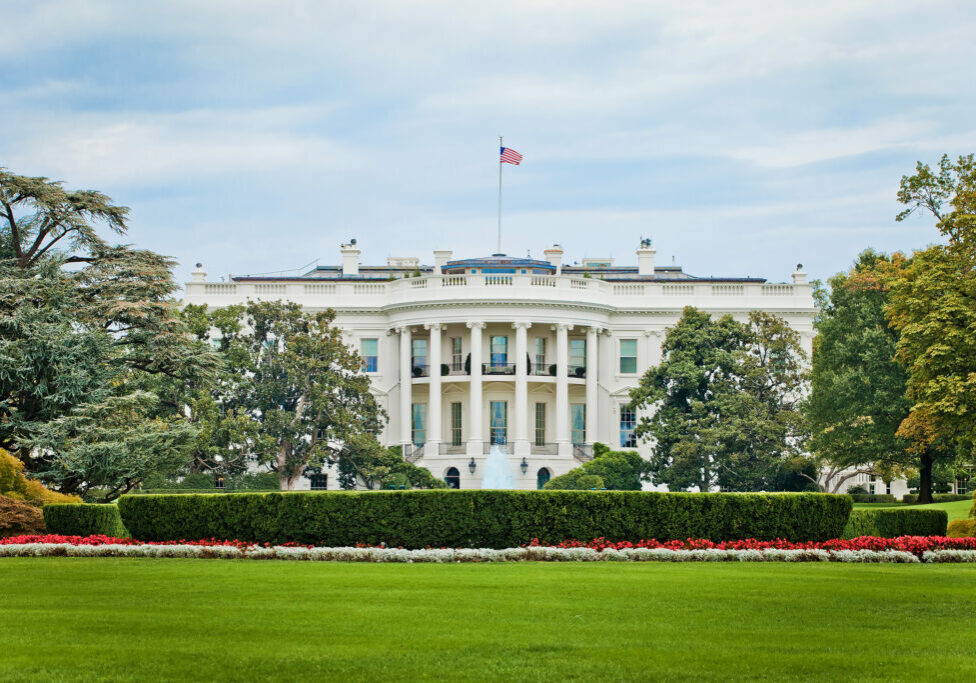Only two of 98 political appointees confirmed by the U.S. Senate during the first 200 days of the Trump administration are Black. That’s according to research compiled by the Brookings Institution, which found that the president’s top appointees are overwhelmingly white (91%) and male (88%). The New York Times’ Elisabeth Bumiller and Erica L. Green report that the administration’s push to end diversity initiatives in government has led to several high-level Black appointees being fired.
“You don’t need a very sophisticated analysis to read into what this means,” said Cathy Albisa, the former vice president at Race Forward, a nonprofit that promotes racial equity in government. Ms. Albisa now runs an organization, Branch4, supporting federal workers. “It is a resegregation of the work force, and an attack on the Black middle class.”
Those fired include Carla Hayden, the first African American and first woman to be the Librarian of Congress; Charles Q. Brown Jr., the chairman of the Joint Chiefs of Staff; and Alvin Brown, the only Black member of the National Transportation Safety Board.
Going backwards on coastal protection
Gov. Jeff Landry’s administration has officially pulled the plug on another long-planned project designed to rebuild Louisiana’s vanishing wetlands. The cancellation of the Mid-Breton Sediment Diversion project near Delacroix comes months after the administration elected to mothball a larger project, the Mid-Barataria Sediment Diversion project. The Times-Picayune | Baton Rouge Advocate’s Mike Smith reports that Louisiana has already spent $90 million of BP funds on the project.
Costs and strong opposition from commercial fishers as well as the two parishes in the project area — St. Bernard and Plaquemines — contributed to its demise. Mississippi Gulf Coast communities were also strongly opposed over concerns the freshwater and nutrients could reach as far as that area. … The Restore the Mississippi River Delta coalition, which includes local and national conservation groups, called the cancellation “yet another devastating blow to the future of our coast.”
The importance of clean titles
Nearly 175,000 Louisiana families have “tangled titles” – homes where legal ownership is unclear because it’s been passed down informally without an updated deed. That missing paperwork can be a major problem when disasters strike, often preventing families from being able to access critical aid when it’s needed most. Alison Jorajuria of JPMorganChase explains in a guest column for The Times-Picayune | Baton Rouge Advocate:
When a home has no clear title, recovery stalls and wealth slips away. … Under Louisiana law, many families end up owning a property “in indivision,” meaning multiple people share ownership of a property, but no one is recognized as the owner of record. Without clear title, it can be hard or impossible to qualify for disaster aid or insurance, secure a loan to fix a roof or even prove the right to live in a house your grandparents paid off long ago.
Free or low-cost help is available from organizations such as People’s Housing+, Louisiana Appleseed or Southeast Louisiana Legal Services.
Medicare and the government shutdown
More than 4 million Medicare beneficiaries used telehealth services during the first six months of this year, while another 31,000 people have made use of a new program, called hospital-at-home, which provides in-home services for people who would otherwise have to be in a hospital. Both programs are now shuttered, as they expired on Oct. 1 and cannot be renewed until the federal government reopens. Stateline’s Tim Henderson reports:
The programs have their roots in the pandemic, when doctors and hospitals wanted to keep patients safe from the risks of travel and hospital stays. Both are for Medicare recipients, generally people over 65 or who are disabled. But since many private insurers follow federal guidelines, some physicians have stopped booking telemedicine appointments for non-Medicare patients, rather than risk a change in insurance coverage.
Number of the Day
9.6% – The share of Louisiana’s overall economic activity that comes from global imports ($31 billion), slightly below the U.S. average of 11.2%. (Source: Pew)
